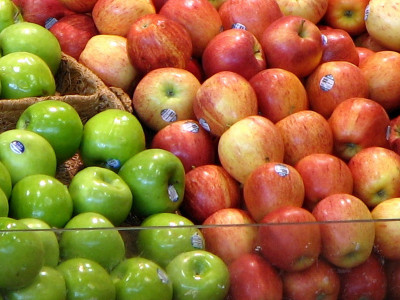Ultra-processed foods full of sugar and fat can affect not only your health but also your learning and memory

It has been pointed out that a diet that relies on `` ultra-processed foods, '' which are processed foods that are high in sugar, salt, and fat, may have a negative impact on health. Recent research has argued that this ultra-processed food may also have a significant impact on brain activity.
The New Science on What Ultra-Processed Food Does to Your Brain - WSJ
A research team led by Alexandra DiFelice-Antonio of the Virginia Tech Center for Health Behavior Research divided participants into two groups, giving one group high-fat and high-sugar snacks and the other group receiving fat and sugar. We conducted an experiment to compare brain responses by giving sweets low in sugar for 8 weeks.
The results showed that in subjects who ate high-fat, high-sugar sweets for eight weeks, the brain region that produces dopamine, a neurotransmitter involved in the reward system that controls motivation and happiness, was more active than in the control group. I found out that it is. The researchers argue that people who frequently eat high-fat, high-sugar snacks are likely to have a similar reaction to just seeing a package of high-fat, high-sugar snacks.

The researchers also gave subjects a simple learning task and asked them to press an associated button when they heard a specific sound. They found that in the group of subjects who ate high-fat and high-sugar sweets, the brain regions involved in situational judgment were activated when the expected results were not obtained.
Based on the above results, the research team argued that high-fat and high-sugar snacks may affect the brain's reward system and change learning and cognitive processes.
Similar experimental results were also reported in a paper published in 2017 by researchers at Macquarie University. Researchers at Macquarie University divided about 150 people into two groups and gave one group a breakfast high in saturated fat and sugar, and the other a breakfast low in saturated fat and sugar for four days. Both groups were given tests to measure their learning and memory abilities, and the group that was given a breakfast high in saturated fat and sugar showed a decline in test performance. On the other hand, there was no change in the performance of the control group.
It has been pointed out that ultra-processed foods may have a negative impact not only on learning but also on mental health. For example, researchers reported that feeding ultra-processed foods to mice for 30 weeks worsened Alzheimer's disease, depression, and anxiety.
Continuing to eat high-fat meals may worsen Alzheimer's disease, depression, and anxiety - GIGAZINE

Additionally, research has shown that ultra-processed foods have a negative impact on mental health. The study argues that eating a diet high in ultra-processed foods increases the risk of depression, anxiety, and sleep disorders.
It turns out that ``ultra-processed foods'' such as fast food and snacks are associated with 32 negative health effects such as metabolic syndrome and mental illness - GIGAZINE

The mechanism by which ultra-processed foods affect brain activity is not yet understood, but Felice Jacka, director of Deakin University's Food and Mood Center, said, ``It's likely to be through the gut microbiome.' ' ” I think. The intestinal microbiota is a community of microorganisms that live in the intestines, and recent research has pointed out that it may affect immune function, stress responses, and neurotransmitter production. Additionally, Arvana Gubuta, who studies the gut microbiome at the University of California, Los Angeles, has found that the typical American diet, which relies on ultra-processed foods, reduces the diversity of the gut microbiome, resulting in beneficial bacteria. He argued that there is a possibility that there will be fewer types of
Professor Ashley Gearhart, a psychologist and food addiction researcher at the University of Michigan, has proposed a new mental health disorder called ``ultra-processed food use disorder'' in psychiatric or psychological terms. According to Professor Gearhart, the symptoms of ultra-processed food use disorder are expected to include intense cravings due to dependence, and irritability and excitement when trying to reduce food intake.
DiFeliceAntonio commented: ``Eating can change your reward system and cause mental health problems, which means that your diet actually affects everything in your life.'' Did.
Related Posts:







